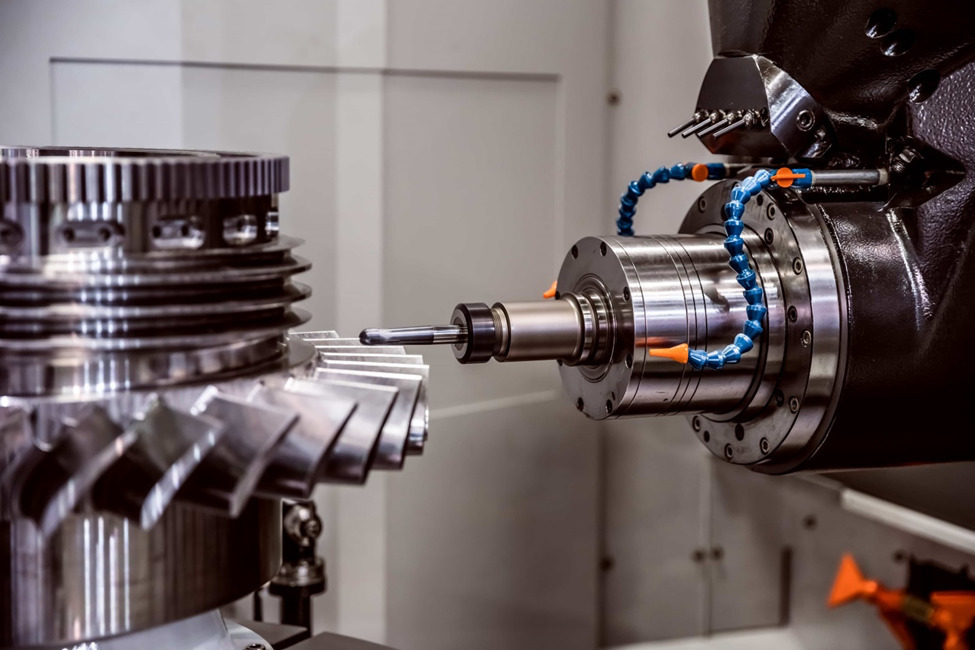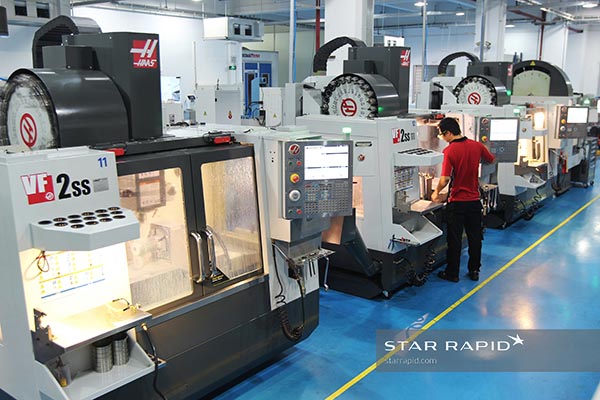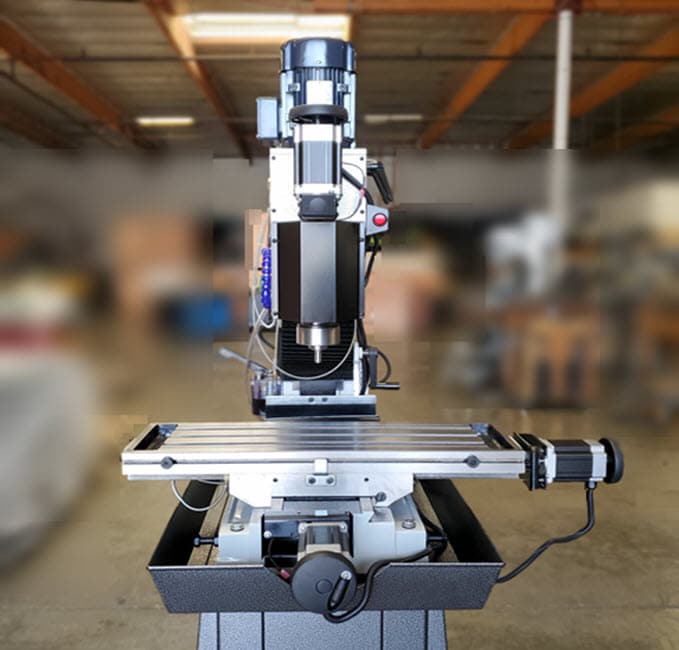Table of Contents
CNC milling machines are a crucial part of modern manufacturing processes, but what exactly does the term “CNC milling machine” mean? Well, CNC stands for Computer Numerical Control, which means that these machines are controlled by a computer program rather than by human hands.
These machines use various cutting tools to shape and carve materials with precision and accuracy, making them ideal for creating complex shapes and designs. Whether you’re a seasoned manufacturing professional or simply curious about the world of CNC machining, understanding what CNC milling machines are and how they work is essential.
A CNC milling machine, or computer numerical control milling machine, is a machine used to process complex shapes and features on a workpiece. The machine uses rotary cutters to remove material from the workpiece. CNC milling machines are capable of producing parts with high accuracy and precision, making them ideal for use in industries such as aerospace, automotive, and electronics.
What Does CNC Milling Machine Mean?
CNC milling machines are computer-controlled machines used for cutting and shaping a wide range of materials. These machines are used in various industries, including automotive, aerospace, medical, and manufacturing. CNC stands for Computer Numerical Control, which means that the machine’s movements are controlled by a computer program. The program controls the machine’s movements, speed, and pressure to create precise cuts and shapes.
How Does a CNC Milling Machine Work?
CNC milling machines use a variety of cutting tools to shape materials such as metal, wood, and plastic. The machine’s cutting tool moves along the x, y, and z-axis, controlled by a computer program. The program sends instructions to the machine’s motors, which move the cutting tool along the desired path. The cutting tool removes material from the workpiece, creating the desired shape.
CNC milling machines use various cutting tools, such as end mills, drills, and reamers. The cutting tool is mounted on a spindle, which rotates at high speed. The spindle is controlled by the program, which sets the speed and direction of rotation.
The Benefits of CNC Milling Machines
CNC milling machines offer several benefits over traditional milling machines. One of the main benefits is their precision. CNC milling machines can create precise cuts and shapes with high accuracy, making them ideal for industries that require tight tolerances.
Another benefit of CNC milling machines is their speed. They can produce parts and components much faster than traditional milling machines, which rely on manual labor. This makes CNC milling machines ideal for mass production.
CNC milling machines are also versatile. They can work with a wide range of materials, including metals, plastics, and wood. This makes them an ideal choice for industries that require different materials for their products.
The Versus of CNC Milling Machines
CNC milling machines are often compared to traditional milling machines. While traditional milling machines are still used in some industries, CNC milling machines offer several advantages.
One of the main differences between the two is their precision. CNC milling machines can create precise cuts and shapes with high accuracy, making them ideal for industries that require tight tolerances. Traditional milling machines rely on manual labor, which can lead to inconsistencies in the final product.
Another difference is their speed. CNC milling machines can produce parts and components much faster than traditional milling machines, which rely on manual labor. This makes CNC milling machines ideal for mass production.
The Types of CNC Milling Machines
There are several types of CNC milling machines, each with its own unique features and capabilities. Some of the most common types include:
– Vertical milling machines: These machines have a vertical spindle axis, which allows for greater control over the cutting process.
– Horizontal milling machines: These machines have a horizontal spindle axis, which is ideal for cutting large and heavy materials.
– 5-axis milling machines: These machines can move the cutting tool along five different axes, allowing for greater flexibility in the cutting process.
Applications of CNC Milling Machines
CNC milling machines are used in a wide range of industries and applications. Some of the most common applications include:
– Automotive industry: CNC milling machines are used to create precise parts and components for engines, transmissions, and other automotive systems.
– Aerospace industry: CNC milling machines are used to create parts and components for airplanes, helicopters, and other aerospace systems.
– Medical industry: CNC milling machines are used to create precise medical devices, implants, and prosthetics.
– Manufacturing industry: CNC milling machines are used to create parts and components for a wide range of products, from consumer electronics to industrial machinery.
The Future of CNC Milling Machines
CNC milling machines are constantly evolving, with new technologies and features being developed all the time. Some of the future trends in CNC milling machines include:
– 3D printing: CNC milling machines with 3D printing capabilities are becoming increasingly popular, allowing for even greater flexibility in the manufacturing process.
– Artificial intelligence: CNC milling machines with AI capabilities can make real-time adjustments to the cutting process, improving precision and efficiency.
– Automation: CNC milling machines with automation capabilities can run 24/7, reducing labor costs and increasing productivity.
Conclusion
CNC milling machines are an essential tool for many industries, offering precision, speed, and versatility. As technology continues to evolve, we can expect to see even more advanced CNC milling machines with new capabilities and features. Whether you’re in the automotive, aerospace, medical, or manufacturing industry, CNC milling machines are an essential tool for creating precise parts and components.
Frequently Asked Questions
Here are some frequently asked questions about CNC milling machines.
What is a CNC milling machine?
CNC stands for Computer Numerical Control, which means that a CNC milling machine is a machine tool that uses a computer program to control its movements and operations. CNC milling machines are used to create complex shapes and designs out of different materials, including metal, wood, and plastic. These machines are highly precise and efficient, making them popular in manufacturing and prototyping applications.
The basic components of a CNC milling machine include a spindle, which holds the cutting tool, a worktable, which holds the material being machined, and a control panel, which houses the computer and software that controls the machine’s movements. The operator inputs the design into the computer program, and the machine performs the cutting and shaping operations according to the programmed instructions.
How does a CNC milling machine work?
A CNC milling machine works by using a computer program to control the movement of the cutting tool and workpiece. The operator inputs the design into the computer program, which creates a set of instructions for the machine to follow. These instructions include information about the desired shape and dimensions of the final product, as well as the path that the cutting tool should follow.
The machine then uses a combination of motors, gears, and other mechanical components to move the cutting tool along the programmed path, cutting away material as it goes. The machine may also adjust the cutting speed and depth of the tool as it works, depending on the properties of the material being machined. Once the machining process is complete, the finished product can be removed from the worktable and used for its intended purpose.
What are the advantages of using a CNC milling machine?
There are several advantages to using a CNC milling machine over traditional machining methods. One of the main advantages is precision – CNC machines are capable of creating highly precise and accurate parts, with tolerances within a few thousandths of an inch. This makes them ideal for applications where high accuracy is required, such as in aerospace and medical device manufacturing.
Another advantage of CNC milling machines is efficiency – they can perform complex machining operations quickly and with minimal operator intervention, which can save time and reduce labor costs. Additionally, CNC machines can be programmed to perform a wide range of operations, including drilling, tapping, and reaming, which eliminates the need for multiple machines and tool changes.
What types of materials can be machined using a CNC milling machine?
CNC milling machines can be used to machine a wide variety of materials, including metals (such as aluminum, brass, and steel), plastics (such as PVC and nylon), and woods (such as oak and maple). The type of material being machined will affect the choice of cutting tool and cutting parameters, as different materials have different properties and require different machining techniques.
Some CNC machines are also capable of machining more exotic materials, such as ceramics and composites, although these materials may require specialized cutting tools and techniques. Additionally, the size and weight of the material being machined may also affect the choice of machine, as some CNC machines are better suited for larger or heavier workpieces than others.
What are some common applications of CNC milling machines?
CNC milling machines are used in a wide variety of applications, from small-scale prototyping to large-scale manufacturing. Some common applications include creating molds and dies for injection molding and casting, producing aerospace and automotive parts, and fabricating custom components for medical devices and electronic products. CNC machines can also be used to create intricate designs and patterns in jewelry and other decorative objects.
In addition to these applications, CNC milling machines are also used in research and development, as well as in educational settings to teach students about computer-aided design and manufacturing. With their high precision and efficiency, CNC milling machines are likely to continue to play an important role in manufacturing and fabrication for many years to come.
In conclusion, CNC milling machines are an essential tool for modern manufacturing. They use computer programming to precisely cut and shape materials into complex designs with high accuracy and speed. This makes them ideal for producing a range of products, from small parts to large structures.
Furthermore, CNC milling machines have revolutionized the manufacturing industry by allowing for greater efficiency, cost savings, and customization. They can be programmed to create unique designs and patterns, making them an ideal tool for creating custom products or prototypes.
Overall, CNC milling machines are a vital part of modern manufacturing and will continue to play an important role in the future. As technology evolves, we can expect to see even more advanced CNC milling machines that offer even greater precision and efficiency, helping to drive innovation and progress in the industry.
Request a quote today!
[contact-form-7 id="1578" title="Contact form"]
Please compress the file into a ZIP or RAR file before uploading. Alternatively, send through your RFQ by email.
enquires@unitymanufacture.com





